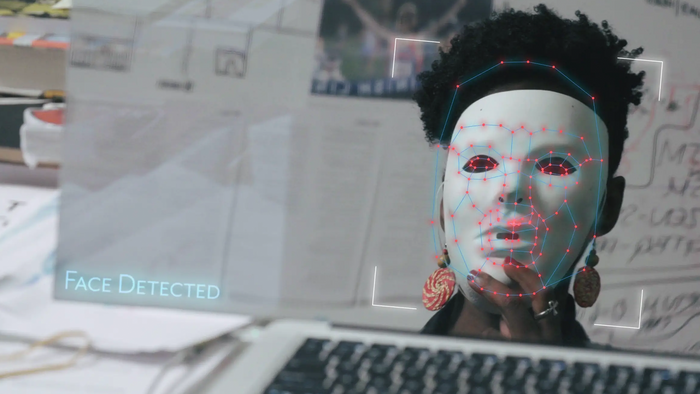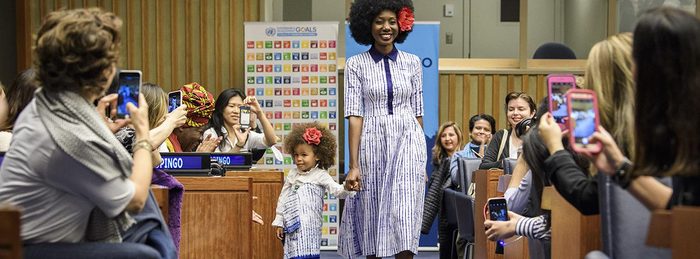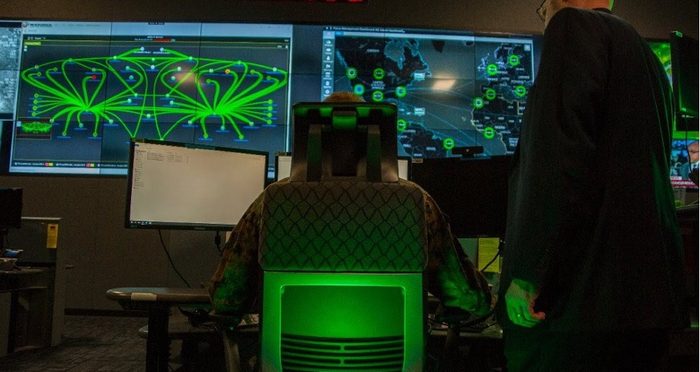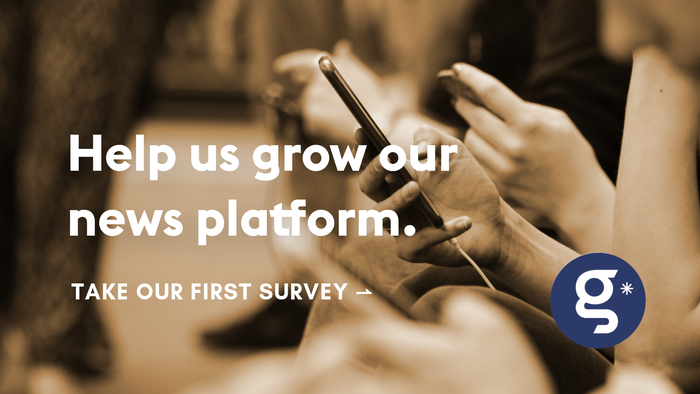Good morning, this is Zelda, and today we are giving a voice to innovation in film, as today is also the World Creativity and Innovation Day.
We spoke to AI researcher and entrepreneur Sharada Mohanty about the frightening flaws in facial recognition technology exposed in Coded Bias, a documentary that appeared at Geneva's FIFDH and now showing on Netflix.
We also encourage you to discover Way Beyond, a new documentary on CERN's Large Hadron Collider at Visions du Réel. Plus, a helicopter made it to Mars this week. |
|
Sciences & Technology News
|
|

"Coded bias" by Shalini Kantayya. Source: FIFDH.
|
|
🌐 Decoding Coded Bias for a more equitable artificial intelligence.
During her first semester at MIT, researcher Joy Buolamwini got a computer-vision software that did not recognise her face until she put on a white mask. This was the beginning of her quest against biases in technology, and the story of a documentary, Coded Bias, presented at the Geneva International Film Festival and Forum on Human Rights (FIFDH) in March.
Geneva Solutions (EN)
|
|
🎥 Films for the scientific imagination.
Way Beyond and The Great Void, two of the films being featured at this year's Visions du Réel documentary film festival in Nyon, seem to answer each other. The first one documents colossal plans to build a new 100km particle accelerator, dubbed the Future Circular Collider (FCC) at CERN. The second observes a world devoid of any sign of life. Science fiction and documentary are highly compatible.
Le Temps (FR)
|
|
Here's what else is happening
|

'Fashion and Sustainability: Look Good, Feel Good, Do Good' – Models parade sustainable clothing representing different regions of the world during the fashion showcase. PHOTO:UN Photo/Manuel Elias.
|
|
|
Anticipatory reads by GESDA
|
|

© Modern War Institute
|
|
The risk of heading to a third ‘winter’ for Artificial Intelligence (AI).
A ‘winter’, talking so, is a massive decrease in financial investments: that is the hypothesis discussed in a fascinating article of Foreign Affairs (FA, see below). Today, a lot of promises go along with developments in that field. So much that recently, one leading researcher in AI and machine learning, Michael I. Jordan, had to stress again that “AI systems are nowhere near advanced enough to replace humans in many tasks involving reasoning, real-world knowledge, and social interaction.”
Still, many countries, starting with the US, are investing gigantus amounts of money in AI research and systems developed by private companies, and this especially in the military sector. But “once again, it risks sliding backward as a result of a destructive ‘hype cycle’ in which overpromising conspires with inevitable setbacks to undermine the long-term success of a transformative new technology”, writes FA. In other words: seeing other countries like China and Russia also investing heavily in AI, the US national security services do the same without being ready, on many fronts, to include AI technologies in their daily business on the very long term! Which could finally lead to the abandonment of those technologies…
Coincidentally, last week, the European Commission announced it would ban certain uses of "high-risk" artificial intelligence systems altogether – think creepy facial recognition tech and many, many Black Mirror episodes, as Politico puts it.
All in all, both news put a dark light on a technology that should deserve something else than a third winter, to quote Michael I. Jordan: “While the science-fiction discussions about AI and super-intelligence are fun, they are a distraction. There’s not been enough focus on the real problem, which is building planetary-scale machine learning-based systems that actually work, deliver value to humans, and do not amplify inequities.”
- Olivier Dessibourg
|

This selection is proposed by the Geneva Science and Diplomacy Anticipator
GESDA, working on
anticipating cutting-edge science and technological advances to develop innovative and inclusive
solutions for the
benefit of the planet and its inhabitants.
|
|
Until 21 April | Way Beyond.
At CERN, an international commission of experts closely follows the FCC (Future Circular Collider) project, the colossal and possible successor to the current particle accelerator. Watch the festival's film online.
Visions du Réel (EN)
|
|
|
GS news is a new media project covering the world of international cooperation and development. Don’t hesitate to forward our newsletter!
Have a good day!
|

|
|
Avenue du Bouchet 2
1209 Genève
Suisse
|
|
|
| |












